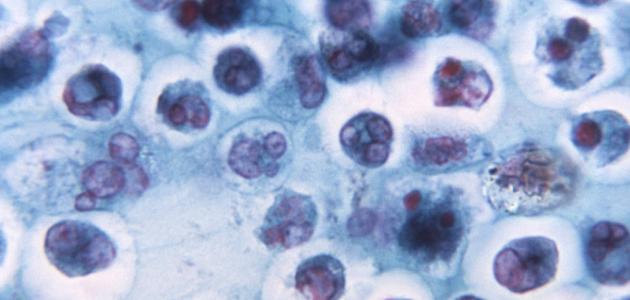Symptoms of weak immunity
People with weak immunity, immunodeficiency, or immunodeficiency (in English: Immunodeficiency) suffer from a group of symptoms and health problems, but their appearance does not necessarily mean immunodeficiency, as it may be due to lifestyle, and we will discuss this in detail below, and in general it can be summarized Symptoms of weak immunity are as follows:
Increased chance of infection and its severity
The most common symptom of a weakened immune system is an increased susceptibility to infection. So that their infection is more frequent than others, and the infection usually targets the respiratory system at first, so sinusitis, lung infection, bronchitis, and other types of infections that affect the respiratory system often recur, in addition to Increasing the chance of infection with other types of infections such as: meningitis, recurrent skin infections, and oral infections such as thrush, which is a fungal infection that affects the mouth. until the infection is severe and its treatment is more difficult for some immunocompromised patients, as well as those with weakened immunity are exposed to types of infections that are not affected by those who have natural immunity, and most cases of weakened immunity cause an increase in the duration of infection, especially bacterial; It may last for a long period of time, or it may result in other complications affecting the patient’s health, for example, a sore throat or a cold may develop into pneumonia. The inevitability of a person with weak immunity, and for example children, may be the recurrence of infection as a result of their presence in nurseries and schools, as such environments spread the infection greatly.
Read also:Why is urine red?Symptoms and signs of weak immunity vary according to the nature of weak immunity, for example; Deficiency of both immunoglobulin A (IgA) and certain types of immunoglobulin G (IgG) antibodies increases the risk of ear infection. lung, sinus, throat, or gastrointestinal tract.
Other symptoms of a weakened immune system
Immunocompromised people may also suffer from many problems, such as: oral ulcers, chronic gum problems such as recurrent gingivitis, frequent ear infections as well, in addition to bacterial infections caused by Staphylococcus bacteria, which cause With sores filled with pus, which may eventually cause pyoderma, in addition to a viral infection that affects the skin and causes large warts, and other symptoms and signs that indicate a weakened immune system include the following:
- fever and chills;
- Loss of appetite.
- Lose weight.
- Abdominal pain may be due to an enlarged liver or spleen.
- Bacterial infection or any other infection leads to a critical and dangerous condition in the patient unexpectedly, as it usually does not cause such seriousness.
- Failure to respond to the used infection treatments, and delayed full recovery from the disease.
- Kaposi sarcoma or non-Hodgkin lymphoma.
- Chronic diarrhea and failure to thrive, a condition that means delayed growth and organ development in infants and young children.
- Increased risk of contracting other diseases, including the following:
- Autoimmune diseases.
- Inflammation of the internal organs of the body.
- Blood disorders, such as anemia
Reasons to see a doctor
Although the above-mentioned symptoms may appear naturally in some cases, seeing a doctor is very important in the event of recurring infection, or if the infection is severe, or does not respond to treatment. The benefit lies in seeing a doctor in early diagnosis of infection and initiation of treatment. Weak immunity, if any, which helps prevent infection in the future and the resulting long-term complications, even if the person with weak immunity has not been diagnosed. Diagnosing him with any other health condition early makes it easier to treat the condition and reduces the chance of any complications arising.
Read also:How to deal with an Alzheimer's patientInformation about weakened immunity
Weak immunity expresses the state of the immune system’s inability to perform its functions as it should, and fighting infections and protecting the body from microbes of all kinds is the main function of the immune system, and in the event of any disorder or weakness in this system, the person is more likely to be infected with various types of infections caused by it These different microbes, and thus increase the chance of infection at a rate more than normal as we mentioned, and it takes a longer period to recover from it, and in fact there are many reasons that lead to weak immunity, including: infection with some genetic diseases, some types of infections, taking certain types of medicines, pregnancy, age, and many other reasons.
Read also:AnaphylaxisIt is indicated that there are two types of weak immunity, which we explain in the following:
- Primary immunodeficiency: It means the immunodeficiency that a person is born with, and it may be attributed to a genetic reason as it is transmitted from parents to children, that is, from generation to generation, with the possibility of infection with this type of weak immunity without a genetic cause; It may appear suddenly in a person's life.
- Secondary immunodeficiency: Where weak immunity is the result of another cause or disease, such as infection with the Human Immunodeficiency Virus (HIV), or as a result of exposure to an accident, or an operation that causes a wound to a specific organ that leads to weak immunity in the body, such as the spleen, for example.









